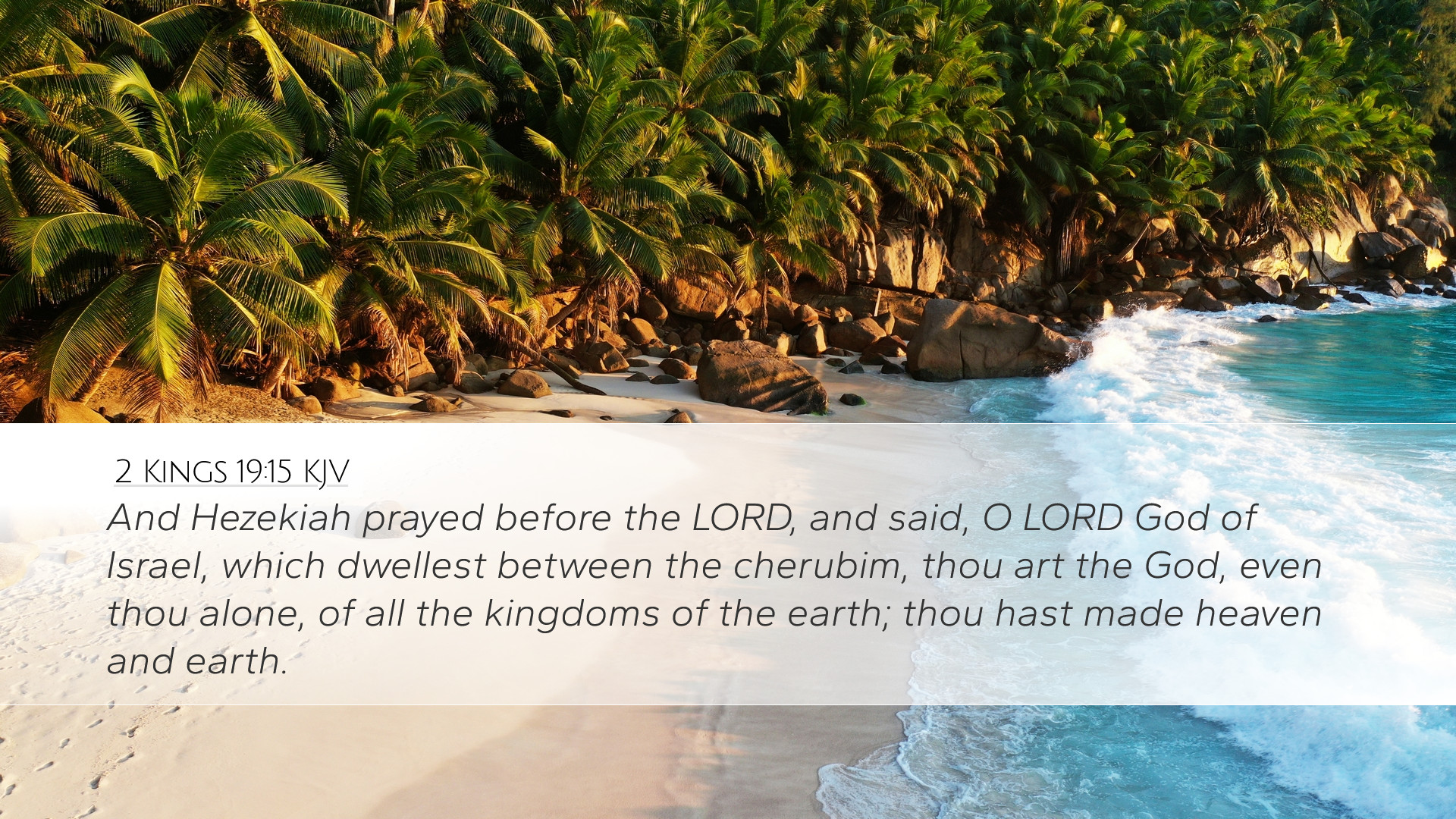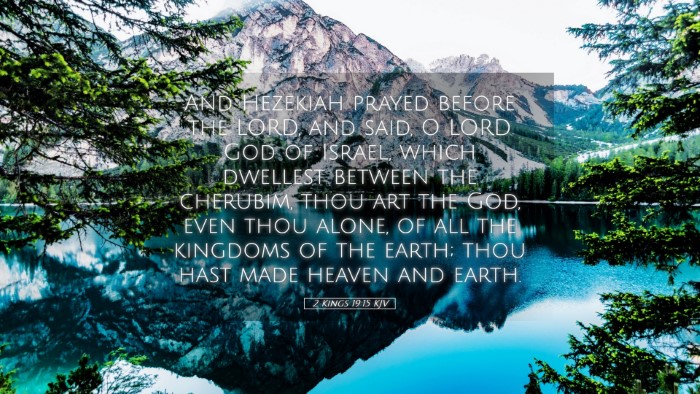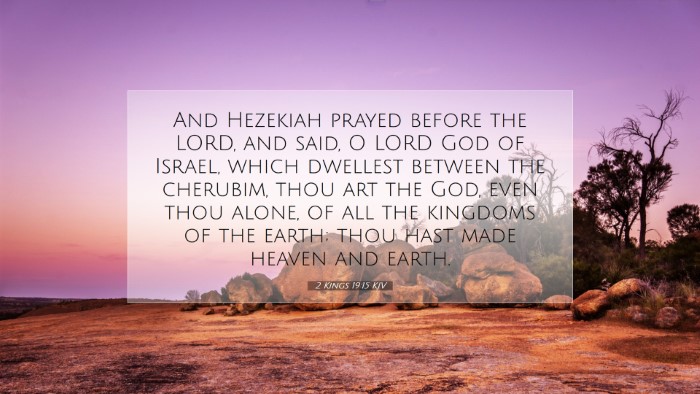Commentary on 2 Kings 19:15
Verse Text: “And Hezekiah prayed before the LORD, and said, O LORD God of Israel, which dwellest between the cherubims, thou art the God, even thou alone, of all the kingdoms of the earth; thou hast made heaven and earth.”
Introduction
2 Kings 19:15 encapsulates a pivotal moment in the narrative of King Hezekiah’s reign, reflecting his deep reliance on God amidst immense national crisis. This verse illustrates not only Hezekiah's faith but also serves as a broader theological statement about God's sovereignty and his unique relationship with Israel. The following commentary synthesizes insights from historic public domain sources to provide a rich exploration of its significance for contemporary believers.
Exegesis and Context
Historical Background: The context of this prayer is critical. Hezekiah, the king of Judah, faced the arrogance and threats of Sennacherib, king of Assyria. The Assyrian army was renowned for its military prowess, and its siege was an existential threat to Jerusalem. Amidst desperation, Hezekiah turns to God, highlighting the principle that true leadership involves reliance on divine power against formidable earthly foes.
The Nature of Prayer
Hezekiah’s Approach: Hezekiah’s prayer is marked by humility and earnestness. He acknowledges God's sovereignty with the phrase “O LORD God of Israel,” which denotes recognition of God's unique covenant relationship with Israel. Matthew Henry emphasizes this aspect, remarking that true prayer arises when one recognizes the incomparable nature of God.
- Divine Recognition: Hezekiah calls God the one "that dwells between the cherubims," which signifies God’s holy presence in the temple (Exodus 25:22). This signifies intimacy and reverence.
- Universal Sovereignty: Hezekiah asserts God as the "God, even thou alone, of all the kingdoms of the earth." This acknowledgment suggests a profound theological truth: God's authority extends beyond Israel, encompassing all nations and rulers.
Theological Significance
God's Sovereignty: The address “thou art the God, even thou alone” encapsulates Hezekiah’s faith in God’s supremacy. Albert Barnes elaborates on this idea, suggesting that the acknowledgment of God’s sovereignty is foundational to the believer’s faith. In a world filled with powers and principalities, the recognition of God’s ultimate authority reaffirms a believer's conviction amidst turbulence.
The Implications of Faith
By praying directly to God rather than aligning with worldly powers, Hezekiah demonstrates a critical lesson for believers: faith should drive actions in times of crisis. Adam Clarke notes that this was a true act of faith, as Hezekiah sought divine intervention rather than military alliances or political stratagems.
Encouragement for Contemporary Believers
This scripture serves as an encouragement for today’s church leaders and believers. It reminds them of the importance of persistent prayer in the face of overwhelming challenges. The spiritual discipline of prayer should be central, especially in crises that threaten the church or individual faith. Hezekiah’s example prompts believers to:
- Acknowledge God’s Sovereignty: Believers are encouraged to rely on God’s power and presence in every circumstance.
- Seek Divine Guidance: Regular prayer should be a foundational practice, inviting God’s wisdom over human understanding.
Conclusion
In sum, 2 Kings 19:15 illustrates the profound relationship between God and His people, showcasing a model of prayer founded on faith and dependence. Hezekiah's invocation of God's sovereignty serves not merely as a historical account but as a timeless reminder for all believers of the necessity of prayer and trust in God amidst adversity. As seen through the theological reflections of Matthew Henry, Albert Barnes, and Adam Clarke, this verse urges the church to uphold its identity rooted in the sovereign care of the Almighty God.


